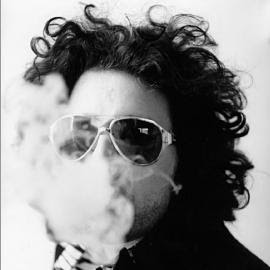
How many times do we expect from another person to be something that they’re not? How often are we dissatisfied because of things that we have not been able to get or achieve? How often does life pass us by, while we are upset because we’d like for things to be different?
It’s not about losing hope or settling for less than our dreams. Comfort and gratitude are good states unless they prevent you from reaching your full potential. It’s about acceptance. It’s about understanding that we don’t have control over everything; we can’t live our lives trying to change things or people into what we want them to be. Accepting is understanding that for now, this is the way things are. At least for now. At this moment in time.
Sometimes, the best you can do is do everything that you can and then simply wait. To accept does not mean that you have to change your plans (although you may want to) it means that you have to contemplate them, evaluate them all while embracing the current state of things.
To accept is to live in accordance with your own being. It’s about having the courage of living your own life, and not subordinating yourself to someone else’s plans. Often, the fear of being “excluded” can lead to adapting our wishes, expectations or decisions to those expectations from who we want a (false) acceptance.
To accept is a commitment to ourselves; to be honest about the way WE feel and think.
The theory of acceptance invites us to live our lives now, without travelling to the past or the future, so that we don’t lose focus. To accept is to be in touch with reality, with the present time, with what is happening here and now.
It’s liberating to think that once we stop being a fighting force and let things flow more naturally with what we have, we will breathe and feel a certain clarity and joy, not leave everything to the whims of uncertain times. After the rain, the sun always shines. If it’s raining today, try walking in the rain.
Sources:
It’s not about losing hope or settling for less than our dreams. Comfort and gratitude are good states unless they prevent you from reaching your full potential. It’s about acceptance. It’s about understanding that we don’t have control over everything; we can’t live our lives trying to change things or people into what we want them to be. Accepting is understanding that for now, this is the way things are. At least for now. At this moment in time.
Sometimes, the best you can do is do everything that you can and then simply wait. To accept does not mean that you have to change your plans (although you may want to) it means that you have to contemplate them, evaluate them all while embracing the current state of things.
To accept is to live in accordance with your own being. It’s about having the courage of living your own life, and not subordinating yourself to someone else’s plans. Often, the fear of being “excluded” can lead to adapting our wishes, expectations or decisions to those expectations from who we want a (false) acceptance.
To accept is a commitment to ourselves; to be honest about the way WE feel and think.
The theory of acceptance invites us to live our lives now, without travelling to the past or the future, so that we don’t lose focus. To accept is to be in touch with reality, with the present time, with what is happening here and now.
It’s liberating to think that once we stop being a fighting force and let things flow more naturally with what we have, we will breathe and feel a certain clarity and joy, not leave everything to the whims of uncertain times. After the rain, the sun always shines. If it’s raining today, try walking in the rain.
I leave you with a gift, below these lines:
“Go to the Limits of Your Longing”
“God speaks to each of us as he makes us,
then walks with us silently out of the night.
These are the words we dimly hear:
You, sent out beyond your recall,
go to the limits of your longing.
Embody me.
Flare up like a flame
and make big shadows I can move in.
Let everything happen to you: beauty and terror.
Just keep going. No feeling is final.
Don’t let yourself lose me.
Nearby is the country they call life.
You will know it by its seriousness.
Give me your hand.”
RILKE
Sources:
Extract from an article I read yesterday.
LNR
This article is written by Jose Antonio García Higuera, a psychologist from Spain.
Translation: Michelle Cameron
Photo courtesy: Vogue UK
LNR
This article is written by Jose Antonio García Higuera, a psychologist from Spain.
Translation: Michelle Cameron
Photo courtesy: Vogue UK
Poem: RILKE



















